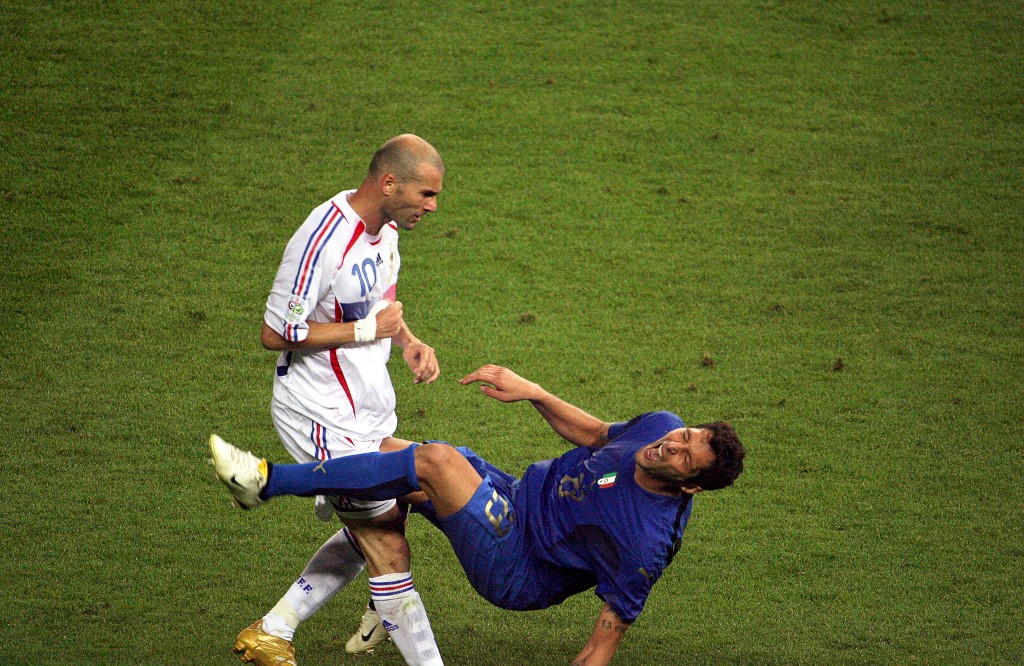If life were all rainbows and happiness, there wouldn’t be a need for a list of the most difficult words in English with meaning.
We’re not saying there isn’t a spectrum of colours that will bring a smile to your face — literally and figuratively. And we’re not saying it’s all about darkness, or that life is filled with death, sorrow and conflicts.
We’re saying it’s both.
Although many of us think we’d be better off without any of these hard times, please allow us to argue that life is so much richer when there are challenges.

Having lots of gold doesn’t make you rich. Having lots of experiences does. Source: AFP
The beauty of hardships
There’s a saying that goes: whatever doesn’t kill you only makes you stronger.
As much as we oppose cliches, this one holds some truth. Don’t believe us? Try these thought experiments.
Remember that time you fell, were insulted or were lied to? How did you face the situation?
Whether you emerged as a hero or not, whether you fully solved the problem or not, you had gained something precious out of it: experience.
Get beaten enough times and you only learn how to stand up faster (or avoid getting into such situation in the first place).
Fail 10 times and you’re only closer to getting it right on the 11th time.
Experience is the greatest teacher and with enough of it, you build that golden trait that’ll support you through anything that comes your way: resilience.
You’re stronger than yesterday and no one can take this away from you.

Strength comes from within too. Source: AFP
Speaking is easy. Speaking mindlessly, without thought, is even easier.
But anyone who’s ever tried to connect or convince another human being will tell you effective speaking is an art that few have mastered.
While anyone can utter words in a row, not everyone can do it to achieve a goal.
And, in life, there’s no more urgent goal than when you’re caught in the middle of a conflict, it’s eating you up and you need to confront it.
It’s pressing because although many of us try to avoid conflicts at all costs, it’s just impossible.
When they involve the people we work with or love, the stakes become even greater. Everything feels like it’s on the line.
Few of us approach conflicts with grace. Instead, most of us suffer through the opposite. We get stressed. our heart races and our muscles tense up.
Sometimes, it’s even hard to breathe and we get into panic attacks.
But why are we so bad with conflicts and confrontations?

The most difficult words in English with meaning are hard because they don’t feel natural to us. They feel confrontational, and thus, dangerous. Source: AFP
We associate it with “danger,” Karen Osilla, an associate professor in psychiatry and behavioural sciences at Stanford Medicine told The New York Times.
Even the most experienced executives avoid conflict, fearing nothing good or productive can come out of it. That both sides stand to lose from any confrontations.
They may be right, but we’d argue that it’s only because they’re referring to bad communication.
We will always have as many things to agree on as we do to disagree with one another. Agreeements aren’t always good and disagreements aren’t always bad.
In fact, you can even say it’s good to have disagreements.
A survey of almost 1,000 adults has found that couples who argue effectively are 10 times more likely to have a happy relationship compared to those who sweep problems under the carpet.
There’s even a book called “Good Arguments: How Debate Teaches Us to Listen and Be Heard.”
It’s written by Bo Seo, a two-time world champion debater, journalist, Harvard Law student, and Schwarzman Scholar.
It’s a CV that’s impressive but not as impressive as the contents of the book.
Resolving disputes in healthy ways can reduce our stress, boost our well-being and improve how we think about ourselves.
Productive disputes, for all their challenges, “are pathways to a bigger life,” Seo said to The New York Times.
The one key tool you need to navigate through these conflicts is your language.
We’ve selected the 10 most common conflicts everyone has to go through in life.
For each, we’ve listed the most important words, and therefore, the most difficult words in English with meaning that’ll help you emerge as a stronger, better person.

The couple who argues healthily and master the most difficult words in English with meaning become successful together. Source: AFP
10 most difficult words in English with meaning
Like with anything hard, start small. Practise these alone, then with people you trust before using it on your colleagues and strangers.
Just before the confrontation, take a deep breath, use a polite tone and calmly share your concern.
What you shouldn’t do is to waste your time thinking what the other person’s motivations are or that you’re not worthy to have this important conversation.
1. “Sorry”
The song goes: Sorry seems to be the hardest word.
And it’s true. Everyone makes mistakes. But think back to the time you didn’t want to admit it.
But it’s so much easier for us to point out what’s wrong with others. Next time, try a different tack. Admit that you’re not always right.
You can also add:
- “Sorry, I lost my temper.”
- “Sorry, I don’t listen enough.”
- “Sorry, I keep ignoring you.”
Do this and see how your relationship becomes better, almost magically, from that point.

Had French midfielder Zinedine Zidane mastered the most difficult words in English with meaning, France may have gone on to win the World Cup 2006 final football match between Italy and France. Source: AFP
2. “I disagree”
We think by always playing along that we’re doing each other a favour. We may also think that we must always agree with what others say, especially those older and in higher positions than us.
Even if we don’t see eye to eye, many of us don’t know how to bring it up. So we take the easy path, nodding and agreeing and gossip about what a pain they are behind their backs.
This is a mistake and nothing productive can come out of this. Instead, openly and respectfully disagree with others by using the examples below:
- “I see it differently. While you have a great idea, I ran some numbers and think our project would benefit more if tried another method.”
- “I don’t agree with your suggestion at this point. Let’s wait a bit to see if we can get a better deal, and then pull the trigger.”

“I love you” is one of the most difficult words in English with meaning enough to crush our hearts.
3. “I love you”
These three words open the door for someone else to hurt you when they don’t reply with “I love you too.”
It’s crushing — which goes to show just how powerful love is. So much so that scientists have found that it rewires our brian.
When we first fall in love with someone, our brain released feel-good neurotransmitters that boost our mood.
Our so-called love hormone oxytocin are rising, so is our hormone and neurotransmitter norepinephrine, making us lose track of time.
When things settle down, we start feeling calmer and more content — with more positive results to our brain. We remember better, are more creative and can deal with pain better.
It’s like a superpower — but one you can only unlock if you muster the guts to say “I love you.”

Want to know how to flirt? Ask old couples. Source: AFP
4. “You’re attractive”
Flirting, in its most honourable version, can inspire another person to believe in their own likeability, psychologically as well as physically.
When was the last time you made such compliments? We avoid because we fear. We fear they’ll reject us, laught at us, think we want something from them or we just don’t know what to say.
These are nothing but our anxieties going into overdrive. Everyone loves compliments, the more and the more genuine, the better.
Next time you want to make someone’s day or show your appreciation to someone, try saying:
- “That pink blazer fits you like the leader you are.”
- ” I find your honesty so refreshing and can only hope to copy you one day.”
- ” You are your most attractive just as you are.”

“Help me” are two of the most difficult words in English with meaning. It’s easy for us to ask for help when we’re physically drowning but not in other areas in life. Source: AFP
5. “Help me”
Saying these two words is like admitting that you’ve failed. No one likes that, especially in a world where only the strong and successful are given so much admiration.
“There is a tendency to act as if it’s a deficiency,” said Garret Keizer, author of “Help: The Original Human Dilemma” (HarperCollins, 2004) to The New York Times.
“That is exacerbated if a business environment is highly competitive within as well as without. There is an understandable fear that if you let your guard down, you’ll get hurt, or that this information you don’t know how to do will be used against you.”
To avoid this, try the following tips the next time you ask for help:
- Be specific
- Ask for help in person and in private
- Read their body language
- Say thank you and mean it!
"difficult" - Google News
December 27, 2023 at 02:18PM
https://ift.tt/tSN9l07
10 most difficult words in English with meaning - Study International News
"difficult" - Google News
https://ift.tt/Pya0M9n
https://ift.tt/rxR3tSW
Bagikan Berita Ini














0 Response to "10 most difficult words in English with meaning - Study International News"
Post a Comment